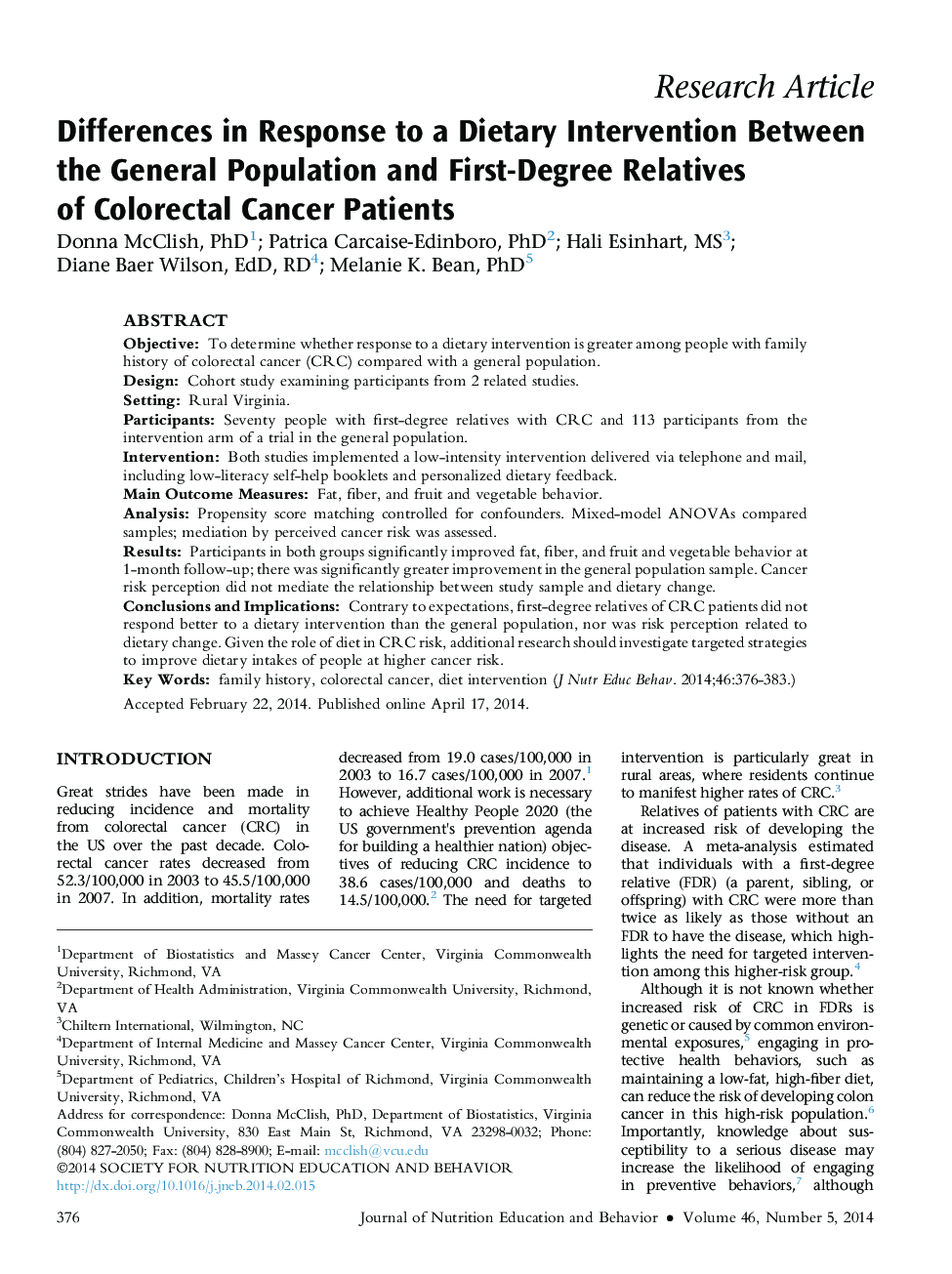| Article ID | Journal | Published Year | Pages | File Type |
|---|---|---|---|---|
| 361243 | Journal of Nutrition Education and Behavior | 2014 | 8 Pages |
ObjectiveTo determine whether response to a dietary intervention is greater among people with family history of colorectal cancer (CRC) compared with a general population.DesignCohort study examining participants from 2 related studies.SettingRural Virginia.ParticipantsSeventy people with first-degree relatives with CRC and 113 participants from the intervention arm of a trial in the general population.InterventionBoth studies implemented a low-intensity intervention delivered via telephone and mail, including low-literacy self-help booklets and personalized dietary feedback.Main Outcome MeasuresFat, fiber, and fruit and vegetable behavior.AnalysisPropensity score matching controlled for confounders. Mixed-model ANOVAs compared samples; mediation by perceived cancer risk was assessed.ResultsParticipants in both groups significantly improved fat, fiber, and fruit and vegetable behavior at 1-month follow-up; there was significantly greater improvement in the general population sample. Cancer risk perception did not mediate the relationship between study sample and dietary change.Conclusions and ImplicationsContrary to expectations, first-degree relatives of CRC patients did not respond better to a dietary intervention than the general population, nor was risk perception related to dietary change. Given the role of diet in CRC risk, additional research should investigate targeted strategies to improve dietary intakes of people at higher cancer risk.
